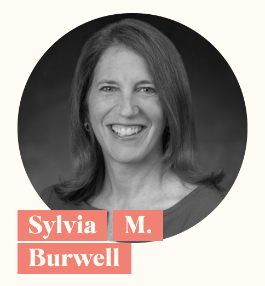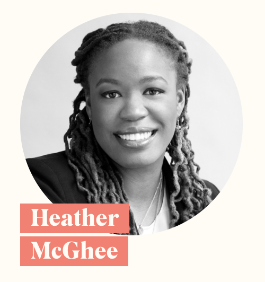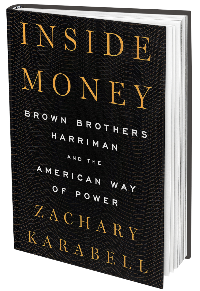Volcanoes are erupting in The Philippines, but on-fire Australia received some welcome rain. The Iran war cries have been called off and The Donald’s military powers are about to be hamstrung by the Senate. Meanwhile, his impeachment trial is starting, and we’re all on Twitter for a front-row seat.
What Could Go Right? Don’t sweat the COVID “scariants”
Our weekly newsletter explains why you don't need to panic about the coronavirus variants once you're vaccinated and provides coolheaded and fresh narratives on the Israeli-Palestinian conflict.
This is our weekly newsletter, What Could Go Right? Sign up here to receive it in your inbox every Thursday at 6am. You can read past issues here.
With all eyes on Israel this week, we have two takes from TPN Members that are coolheaded, keep possibilities for the long term in mind, and bring fresh narratives to the fore. First, Thomas Friedman with an important backstory not everyone will have seen: that the recent fighting comes on the brink of an “unprecedented national unity government” emerging in Israel—”a cabinet that for the first time would have included Israeli Jews and Israeli Arab Muslims together.”
The fresh fighting, of course, will make such a coalition impossible in the near term, which was no accident. Both Prime Minister Netanyahu and Hamas, writes Friedman, “have kept power by inspiring and riding waves of hostility to ‘the other.’ They turn to this tactic anytime they are in political trouble.” But the existence of other centrist figures willing to cooperate with one another is no small thing in a mess that often seems unsolvable.
Second, Robert Wright wonders whether a shift in the discourse over a one-state solution, once unmentionable, now means the solution itself could be viable. “Building a single state in which Israelis and Palestinians live in peace is a mammoth challenge of political engineering,” he writes. “But serious thinkers are coming up with various creative ideas . . . for making it work.” He reminds us, too, that plenty of things that once seemed impossible have occurred.
On the pandemic front, we’ve been enjoying news from places like Texas and Massachusetts that have had days with zero COVID deaths for the first time since the pandemic started.

Three cheers to MIT Technology Review for writing the story we didn’t know we’ve been waiting for: “Five reasons why you don’t need to panic about coronavirus variants.” Among them is the counterintuitive reason why we should feel comforted that the same virus mutations are appearing in different parts of the world: it may mean that the virus is running out of mutation combinations.
The regulatory update from the EU that the Pfizer vaccine can now be safely stored for up to a month isn’t exactly the kind of news that seems exciting on the face of it, but it will directly translate into a faster and easier vaccination process in Europe, and eventually, the rest of the world. Currently, Pfizer doses can only be stored for five days at extremely low temperatures, a serious logistical hurdle now starting to disappear. Just last night, Pfizer announced that a new version of its vaccine, storable for up to six months in normal refrigeration conditions, is coming soon.
File these under “unexpected benefits of a global crisis”: In one doctor’s view, the pandemic improved healthcare generally. Now, a much larger chunk of employers is planning to offer benefits like critical illness coverage, backup eldercare, and even pet insurance (good news for Spot). It has cemented two significant climate trends, record growth of renewable energy and a likely permanent decline in power sector emissions—emissions from generating electricity—which are coal- and natural gas-based. And, The Atlantic’s Arthur Brooks, whose self-help columns are always on point, on what advantages the pandemic has given us to prepare a new and better normal in our personal lives.
Before we go, a big congratulations to our founder, Zachary Karabell, on the publication of his new book. Inside Money: Brown Brothers Harriman and the American Way of Power tells the story of the financial firm as a beacon of sustainable capitalism, a much-needed example in a world where we seemed to have lost the wisdom to understand that more is not always more. Check out the summary below, or you can read an excerpt in the Wall Street Journal or listen to Zachary speak about why it’s an issue that financial elites are no longer accountable.

It’s a big moment for electric pickup trucks. This week, Ford revealed its all-electric F-150, which will join Tesla’s Cybertruck, Rivian’s R1T, the GMC Hummer (pictured) and the planned electric Chevy Silverado in the electric truck market. Will buyers go for it? They might, considering that you can use the F-150 as a generator for your home in case of a power outage.
From us: What is the power of ideas, and can we harness it for ourselves? TPN Members Joan Blades, co-founder of Living Room Conversations, and public intellectual Steven Pinker, author of Enlightenment Now, discuss democratizing, exchanging, and combining ideas. Watch the full conversation or read an extract from our May event.
Progress, Please
(Found good news? Tweet at us @progressntwrk or email.)
TPN Member originals
- Would you wave the magic wand to solve climate change? | Yascha Mounk
- John McWhorter talks about balance and perspective on race | John Wood Jr.
- If you’re into trippy conversations: Author Eric Wargo on dreams, premonitions, and the long self | Yancey Strickler
- Jason Feifer is optimistic about the future | Jason Feifer
- Joy Harjo on the story matrix that connects us all, and more | Krista Tippett
- The Colonial Pipeline crisis is a taste of things to come | Jason E. Bordoff
- If you’re fully vaccinated, the time has come to take off that mask | Yascha Mounk
- What will happen to post-pandemic offices and downtown neighborhoods | Richard Florida
- We should begin talking about how to put militarism behind us | John Horgan
Other good stuff in the news
- Are we about to see airports become massive solar farms? | Wired
- Child cash benefits for 39 million American families are coming in July | The Washington Post
- Has America hit the vaccine wall, or is that just flat wrong? | National Review
- Older people may be able to stave off dementia by talking on Zoom | CNN
- Can we talk about the end of the pandemic now? | The Washington Post
- McDonald’s will raise pay for its US restaurant workers | The Wall Street Journal
- And they’re not alone; other US restaurants and stores are boosting wages, too | AP
- Ohio is giving vaccinated adults a shot at a million bucks (no pun intended) | Politico
- Rhinos will return to a Zimbabwe national park after being nearly wiped out 30 years ago | Bloomberg
- AI lets man with paralysis type with his thoughts | New Scientist
- Silent whale watching on Iceland’s first electric boat tour | The Guardian
- Gene therapy is benefiting kids with immunodeficiency | The Scientist
Upcoming Events
- What Does It Take to Be Happy? | Angela Duckworth | May 20
- This Is All I Got: A New Mother’s Search for Home | Alissa Quart | May 27
- The Summit to Speed Up World-Changing Solutions | May 27
- Debt: Ten Years On | Gillian Tett | June 2

New Members Alert
Sylvia M. Burwell is the president of American University and the first woman to serve as its president. A visionary leader with a commitment to education and research, Sylvia has extensive experience in both the public and private sectors and has helped to advance solutions to some of the world’s most pressing challenges.
Listen to Sylvia speak about how to make higher education more accessible and affordable.

Heather McGhee is an author, speaker, and advocate who designs and promotes solutions to inequality in America. Her book The Sum of Us: What Racism Costs Everyone and How We Can Prosper Together is a New York Times bestseller, and her 2020 TED Talk, “Racism Has a Cost for Everyone,” garnered a million views in just two months.
Listen to Heather speak about moving past zero-sum thinking in race relations with TPN Member Archon Fung.

On Our Bookshelf
When did we stop putting morals over money? TPN Founder Zachary Karabell’s new book, Inside Money: Brown Brothers Harriman and the American Way of Power, explores the legendary private investment firm Brown Brothers Harriman from the early 1800s to the present.
Today, unlike many of its competitors, Brown Brothers Harriman remains a private partnership and a beacon of sustainable capitalism, having forgone the heady speculative upsides of the past 30 years but also having avoided any role in the devastating downsides. The firm is no longer in the command capsule of the American economy, but, arguably, that is to its credit. If its partners cleaved to any one adage over the generations, it is that a relentless pursuit of more can destroy more than it creates.
Learn more about the book and buy it here.


